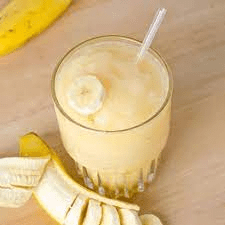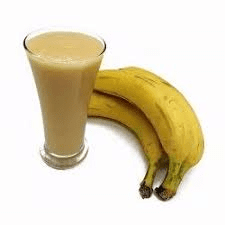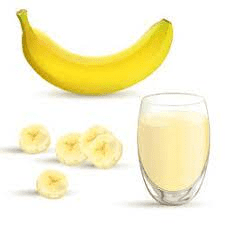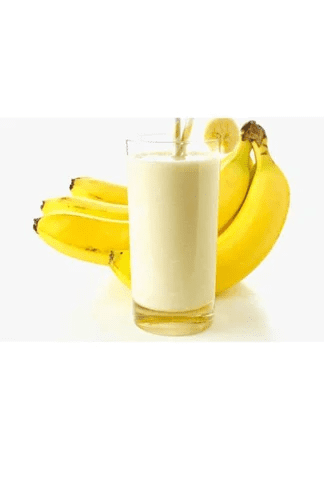Banana pulp refers to the soft, creamy part of the fruit that is enclosed within the peel. It is the edible portion of the banana and constitutes the majority of its flesh.
Characterized by its smooth texture and sweet flavor, banana pulp undergoes a transformation as the fruit ripens. When unripe, the pulp is firm and starchy, typically white or pale in color. As the banana matures, enzymes within the fruit break down these starches into simpler sugars like sucrose, fructose, and glucose. This process results in a softer texture and a sweeter taste, with the pulp turning from pale to vibrant yellow.
Nutritionally, banana pulp is rich in essential vitamins and minerals. It is notably high in potassium, an electrolyte crucial for maintaining proper muscle function and heart health. Bananas also provide significant amounts of vitamin C, which supports immune function, and vitamin B6, important for metabolism and nervous system health.
In culinary applications, banana pulp is versatile and widely used. It can be eaten fresh, sliced into salads, blended into smoothies, or mashed and used as a natural sweetener in baking. Its soft texture makes it easy to digest, making it a popular choice for both adults and children.
Culturally, banana pulp holds significance in regions where the fruit is cultivated. It is used in various traditional dishes, desserts, and beverages, reflecting its importance as a staple food and a symbol of hospitality.
Overall, banana pulp represents the nutritious and flavorful essence of the fruit, embodying both culinary versatility and cultural significance across the globe.
The Economic Importance and Uses of Banana Pulp

1. Food Industry: Banana pulp is a versatile ingredient used in various food products, including baby food, desserts, and beverages.
2. Nutritional Value: Banana pulp is rich in potassium, vitamins C and B6, dietary fiber, and antioxidants, offering significant health benefits.
3. Culinary Uses: Banana pulp is used in baking, smoothies, ice creams, and jams, adding flavor and texture to these products.
4. Beverage Production: Banana pulp is used to make juices, smoothies, and milkshakes, valued for its natural sweetness and nutritional content.
5. Baby Food: Mashed or pureed banana pulp is a popular choice for baby food due to its mild taste and easy digestibility.
6. Export Commodity: Processed banana pulp is exported globally, contributing to the economies of banana-producing countries.
7. Ingredient in Processed Foods: Banana pulp is used in processed foods such as yogurt, sauces, and snacks.
8. Pharmaceutical Uses: Extracts from banana pulp are used in pharmaceutical products and dietary supplements.
9. Industrial Applications: Banana pulp is used in the production of bioethanol, biodegradable plastics, and other industrial products.
10. Animal Feed: By-products of banana pulp processing are used as feed for livestock, reducing food waste.
11. Cosmetic Industry: Banana pulp extracts are used in skincare products for their moisturizing and antioxidant properties.
12. Agricultural Use: Banana pulp waste can be composted to enrich soil fertility and improve crop yields.
13. Biofuel Production: Banana pulp can be fermented to produce ethanol, used as a renewable fuel source.
14. Desserts and Sweets: Banana pulp is a key ingredient in desserts like banana pudding, banana bread, and banana splits.
15. Cultural Significance: Banana pulp plays a role in various cultural and traditional dishes, particularly in tropical regions.
16. Household Uses: Banana pulp can be used as a natural conditioner for hair, thanks to its moisturizing properties.
17. Art and Craft: Banana pulp can be used in papermaking and other art projects, utilizing its fiber content.
18. Waste Utilization: Utilizing banana pulp reduces food waste and maximizes the use of all parts of the banana fruit.
Read Also: Best Number of Ruminant Animals per Housing Unit for Fattening
The Products and By-products That Can Be Derived From Banana Pulp

1. Baby Food: Pureed banana pulp is a nutritious option for infant diets.
2. Desserts: Used in baking, ice creams, puddings, and other sweet treats.
3. Beverages: Banana pulp is used to make juices, smoothies, and milkshakes.
4. Yogurt: Banana pulp is added to yogurt for flavor and nutritional enhancement.
5. Snacks: Banana pulp is used in snacks like banana chips and bars.
6. Pharmaceutical Products: Extracts used in medicines and dietary supplements.
7. Bioethanol: Fermented banana pulp used as a renewable biofuel.
8. Biodegradable Plastics: Used in production for eco-friendly packaging.
9. Animal Feed: By-products used as supplementary feed for livestock.
10. Skincare Products: Extracts used in creams and lotions for moisturizing.
11. Hair Conditioner: Banana pulp used as a natural conditioner for hair.
12. Compost: Banana pulp waste composted for soil enrichment.
13. Papermaking: Banana pulp used in paper and craft production.
14. Cultural Dishes: Used in traditional dishes and cuisines globally.
15. Ethanol Production: Fermented banana pulp used in ethanol production.
16. Food Additives: Used as a natural flavoring and thickening agent.
17. Art and Craft: Utilized in art projects and decorations.
18. Environmental Benefits: Utilization reduces food waste and supports sustainable practices.
Read Also: Common Rabbit Diseases and How to Cure them
Frequently Asked Questions (FAQ’s) About Banana Pulp

1. What is banana pulp used for? Banana pulp is used in food products, beverages, cosmetics, and industrial applications.
2. Is banana pulp good for health? Yes, banana pulp is nutritious, rich in vitamins, minerals, and dietary fiber.
3. How is banana pulp used in cooking? Banana pulp is used in baking, desserts, beverages, and as a flavoring agent in various cuisines.
4. Can banana pulp be used in skincare? Yes, extracts from banana pulp are used in skincare products for moisturizing and antioxidant properties.
5. What industrial uses does banana pulp have? Banana pulp is used in biofuel production, biodegradable plastics, and other industrial applications.
6. How can banana pulp benefit agriculture? Banana pulp waste can be composted to enrich soil fertility and improve crop yields.
7. Can banana pulp be fermented into bioethanol? Yes, banana pulp can be fermented to produce ethanol, which is used as a renewable fuel source.
8. Are there cultural uses for banana pulp? Yes, banana pulp plays a role in various traditional dishes and cultural cuisines, particularly in tropical regions.
9. What are the nutritional benefits of banana pulp? Banana pulp is rich in potassium, vitamins C and B6, dietary fiber, and antioxidants, supporting overall health and well-being.
10. How can banana pulp be used in household applications? Banana pulp can be used as a natural conditioner for hair and as an ingredient in homemade skincare treatments.

